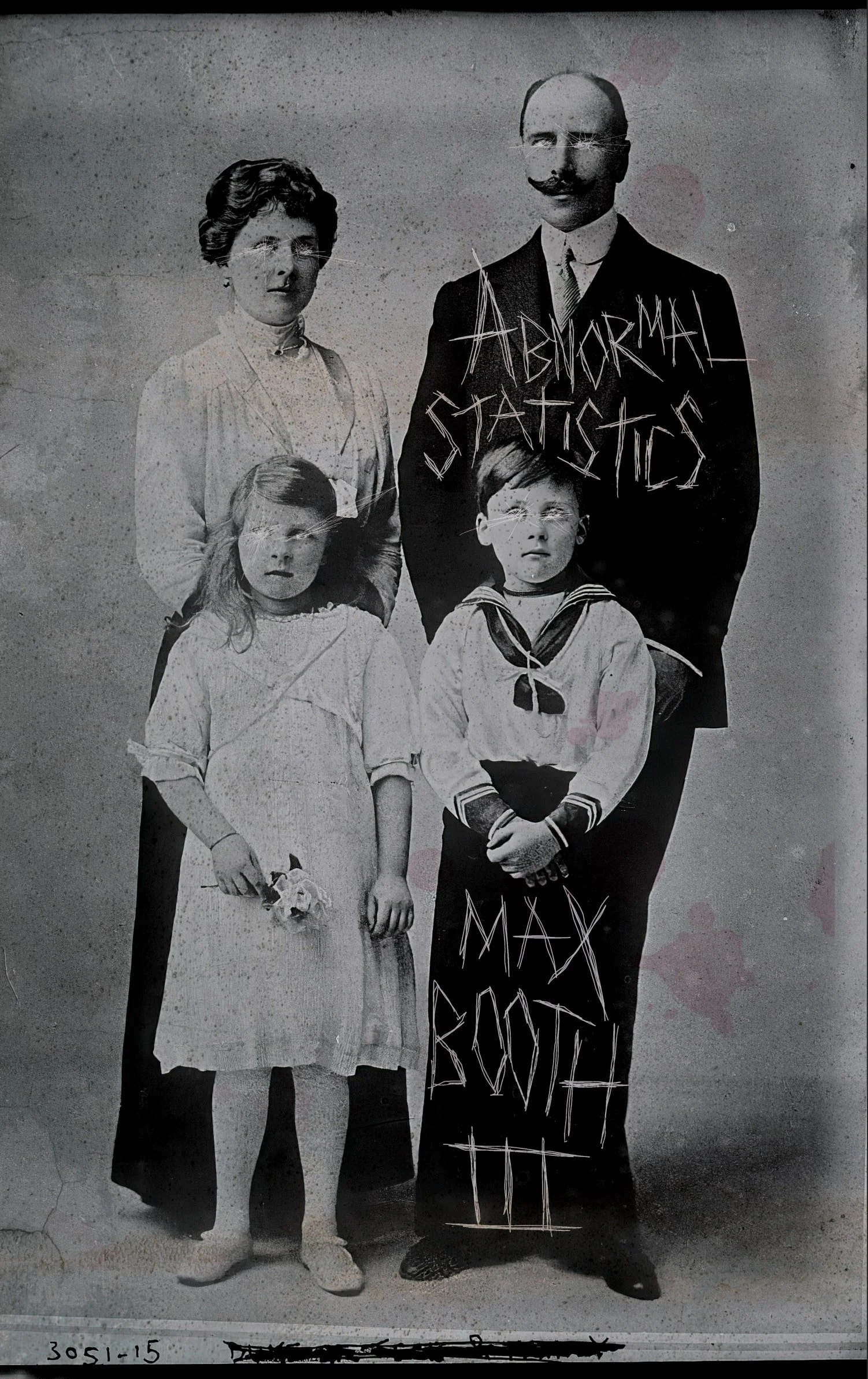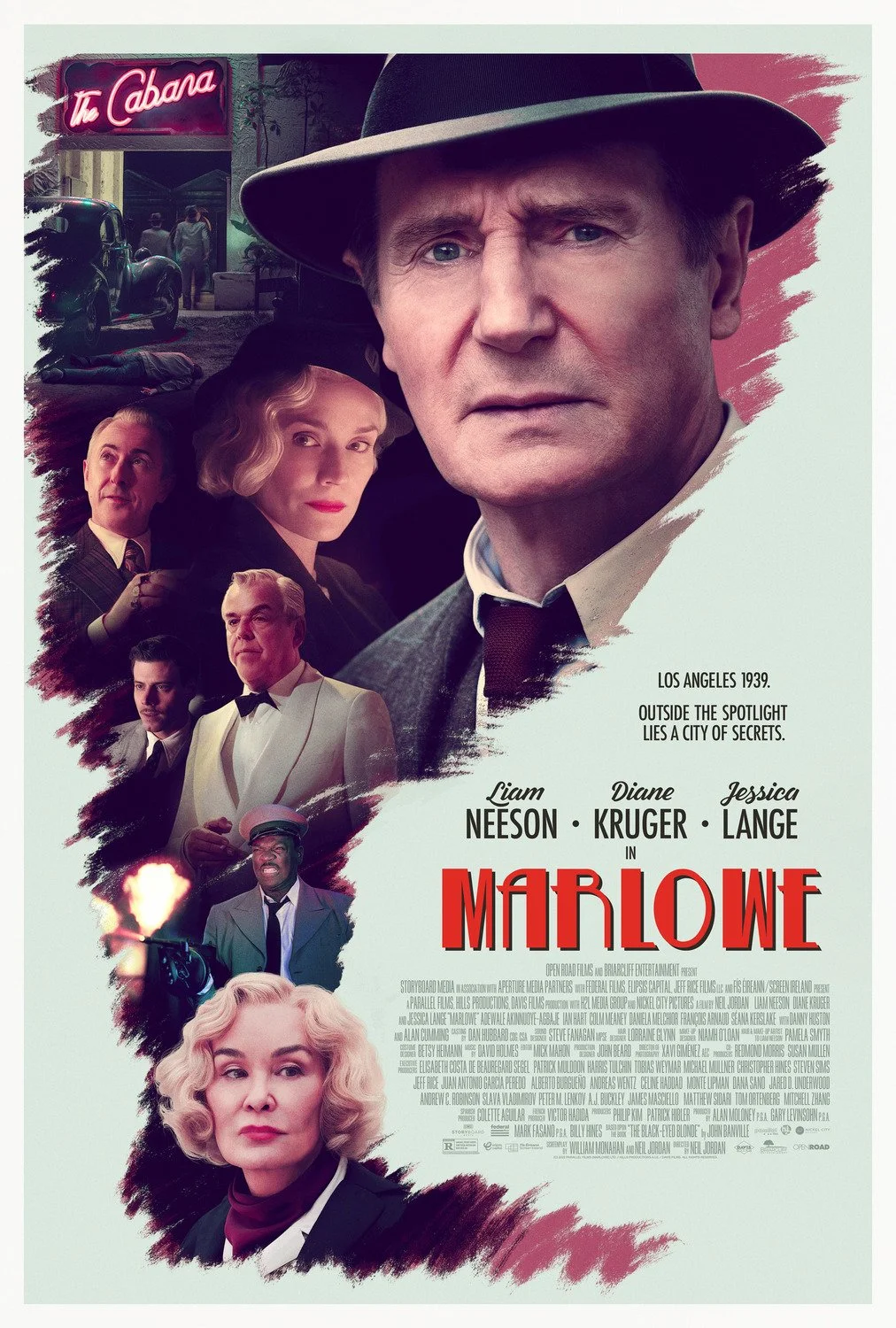Book Review : Max Booth III - Abnormal Statistics (2023)
There’s no rules to how to make profound, emotionally resonant art. I could lay down ten for you and a movie or a novel could respect none of them and still be great. But it’s much likelier to work out if the creator puts a personal spin on it. Because your personal experiences and uniqueness are your calling card as an artist. They’re what makes you "you" and what makes you connect to people who have been down similar paths.
So, what makes Max Booth III’s first short story collection Abnormal Statistics terrifying is not exactly the horror, it’s how fucking relatable it is.
Abnormal Statistics features thirteen short stories. Ten reprints and three originals, including the monolithic Indiana Death Song. Taking up one third of the length of the collection, it tells the story of a teenager living in comped hotel rooms from the local casino. Prisoner of his mother’s gambling addiction and yet left to himself, he wanders the facilities like a ghost until he stumbles upon the poorly cleaned scene of a suicide and finds a tooth that belonged to the departed.
The real monsters was not quite us all along, but it's not like we helped out
At the end of the collection, Booth claims that Indiana Death Song was first meant to be a literary novel based on his own experiences.That makes sense. It takes a while for the horror elements to kick in, but it’s a story that rewards your parents. They’re triggered by the protagonist's growing sense of isolation and alienation and when the fragile sense of reality starts crumbling, you’re experiencing it through a first person perspective, so you’re never really sure what’s going on and you’re never really sure what’s real and what isn’t.
Being a fan of liminal spaces and shambolic architecture, I thought Indiana Death Song was one of the best stories I’ve read where the setting is a character.
My second favorite story in Abnormal Statistics is Disintegration is Quite Painless, a reprint from Lovecraftian anthology Shadows Over Main Street Vol. 2. Using apocalyptic imagery and the innocence of childhood without filtering one through the other, it creates a sense of urgency and vulnerability that you can only experience if you’ve ever faced a situation you were emotionally and logistically ill-equipped to handle. Looking down the barrel of your own annihilation is one thing, but witnessing unsuspecting kids going through the same process is grueling.
Fish is another really fun one where a horny teenager stereotype transforms into a righteous dad stereotype like one would morph into a werewolf under the full moon. Munchausen explores the volatile mental universe of people with mental health problems without even pathologizing or coming off as didactic. This is one of the big strengths of Max Booth III’s writing. He never sacrifices the dramatic aspect of his writing. It’s always a show and the show’s always the priority.
The other two original stories Abduction (Reprise) and List of Familicides in the United States (By Decade) are also worth a special mention. The latter is quite bold formally, using the aesthetic of a Wikipedia article to explore an urban legend type of premise. It’s another one of these stories that requires patients and good faith, but that ends up rewarding whoever showed up until the end.
The Inescapable Nightmare of Being Yourself at Home
Now, I’m a notorious hater of short story collections. I refuse them all the time for Dead End Follies and the ones I read, often I don’t review. But none of the reasons for my dislike of short story collections apply to Max Booth III’s Abnormal Statistics. He’s not unable to write a novel, he’s done it a dozen times before and he's actually great at it. He’s also not a thematic mess. The stories of Abnormal Statistics can all range under the same thematic umbrella: family is a fucking nightmare.
This isn’t surprising since alienation and estrangement from family has been a recurring theme in Booth’s writing. While last year’s outstanding Maggots Screaming! highlighted the discomfort of having expectations towards one another, Abnormal Statistics is more about how the pressures of family responsibilities (or being cared for by someone who refuses these responsibilities) can damage someone. In the world of Abnormal Statistics, home is a place where being yourself comes at a cost.
A strong overarching theme is so important to a successful short story collection. When I read fiction, I don’t want to have to reinvest myself into a whole new universe every ten or twenty pages. The stories of Abnormal Statistics come off like they’re all happening at the same time, to a row of neighbors on the same apocalyptic street. Everyone is living through the end of the world inside the confines of their mind and out.
*
If you’ve been around Dead End Follies for a while, you’re used to me singing the praises of Max Booth. Not only he’s great, but he’s getting better as he’s maturing and taking confidence with his craft. He’s also a great curator of his own legacy now. Abnormal Statistics came out on March 23rd from Apocalypse Party. It reads like an anthology show about fucked up families (and how families can fuck someone up). It’s probably much better than what you’re reading right now.






